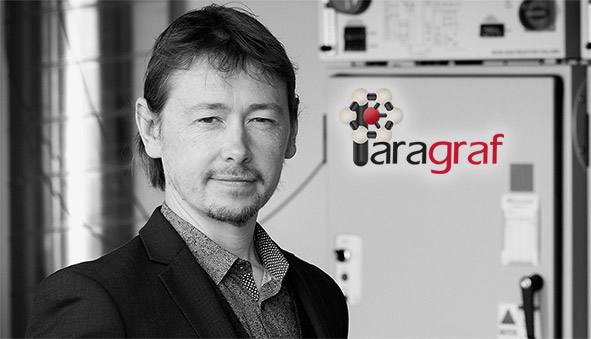Rapidly expanding start-up builds valuable new contacts
Networking is an essential responsibility for any chief executive – but it can be a time-consuming exercise which doesn’t always come with a tangible return on investment.
That pressure can be felt keenly by leaders of smaller organisations such as start-ups, who often recognise the value of exchanging information and ideas with their peers, but find themselves faced with a multitude of other tasks which always seem to take priority.
For Simon Thomas, chief executive of Cambridge University spin-out Paragraf, identifying and making the most of the right kind of networking opportunities was proving to be a familiar challenge – until, that is, he was introduced to the Bessemer Society, which aims to bring together like-minded people interested in the fields of science and technology.
“As a relatively young chief executive of a fast-growing company, I’d been somewhat frustrated by the lack of accessible networks, particularly in the area of hard-tech,” he says. “There always seemed to be significant barriers to overcome: you needed to be fairly well-known in the tech sector and invited, or to know someone, or to have done existing business with a member organisation.
“That’s where Bessemer was different. It was an extremely welcoming forum, which took a less formal approach to opening up valuable links with other business people and entrepreneurs. Right from the start, I found it a highly valuable means of making new contacts.”
Simon attended his first Bessemer regional event around one year ago, and the format of introductions, networking and speeches really struck a chord. “The structure provided the chance for each attendee to do a brief introduction – an elevator pitch, of sorts. That was really useful for me personally, because it presented an opportunity to receive constructive feedback from other more experienced attendees, many of whom had been chief executives for many years. That was really educational: mentoring by osmosis, if you like.”
Simon’s attendance at that first meeting resulted in far more than just a learning opportunity. At that time, Paragraf – a company specialising in the production of high-quality, large-area graphene – was undergoing a period of rapid expansion, characterised by the construction of a new research and development facility north of Cambridge. The Bessemer meeting put Paragraf in touch with many other relevant companies, leading to the formation of some mutually-beneficial business relationships that still exist today.
“There was real value from attending the meeting, and subsequent get-togethers,” he says. “We have directly established working relationships with several organisations, providing us with access to new kinds of equipment and processes which has accelerated our progress.”
Overall, Simon and Paragraf have found membership of the Bessemer Society to be extremely worthwhile. “I would go as far to say that Bessemer has been more useful to me than any other networking activity I have participated in as a CEO,” he adds.









